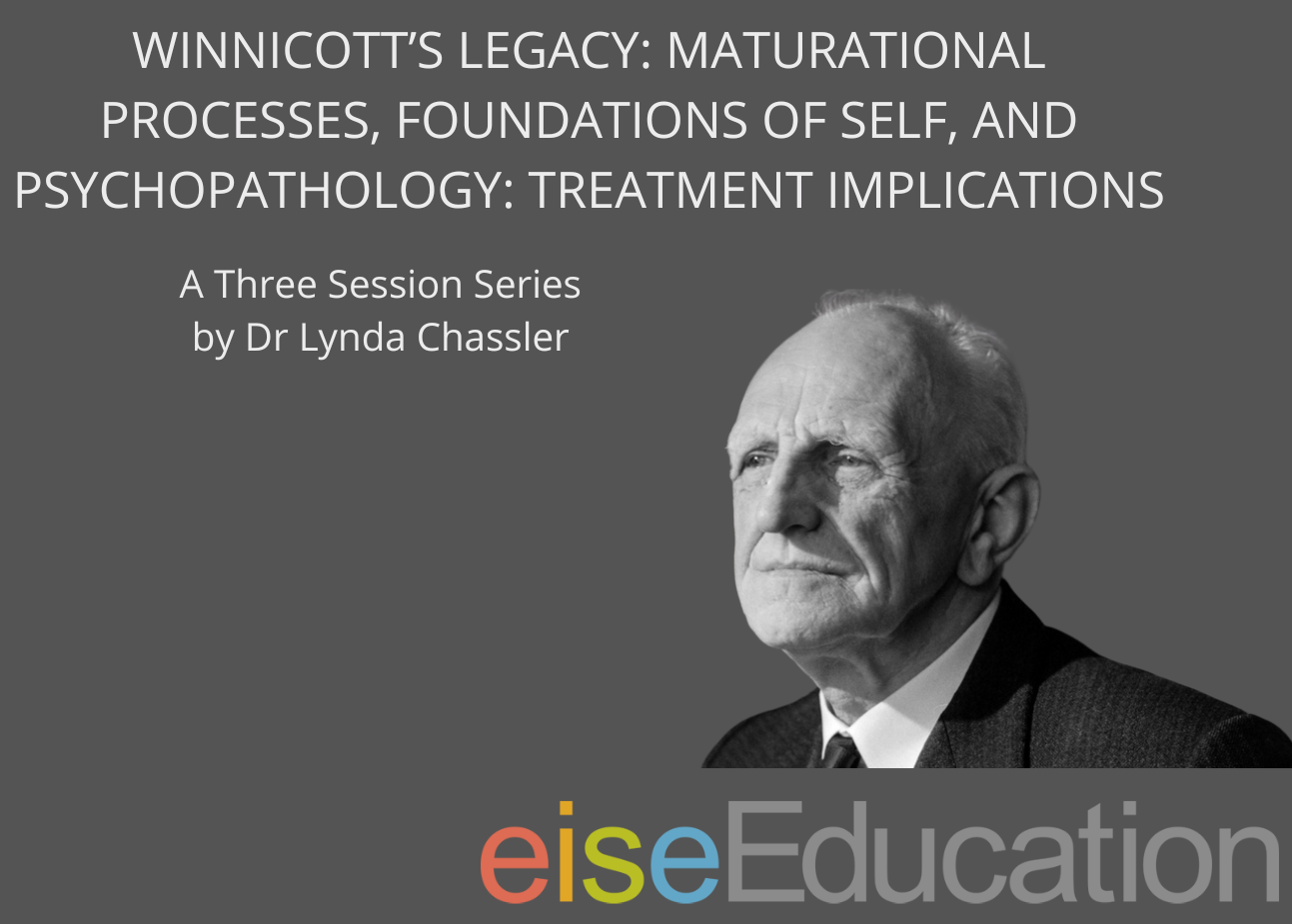Live Webinars
Browse our unique range of upcoming Live Psychotherapy Webinars. Hear from Prof Jennifer Freyd, Prof Richard Kluft, Dr Christine Courtois, Prof Melanie Turner, Dr Lynda Chassler, Prof Warwick Middleton, Dr Simon Heyland, Dr Paul Martin, Dr Kevin Keith, Dr Kris Rao, Zern Liew and others in our exclusive, thought-provoking webinar series.
Jul-Sep 2025
Acute Suicidal Distress (Free Webinar)
Prof Melanie Turner
Wednesday, 23rd July, 2025
6.30 p.m to 8.30 p.m AEST
In this clinically focused session, Prof Turner will clarify key definitions and distinctions around suicide and acute suicidal states, and explore leading theoretical models and contemporary understandings of suicidal behaviour. Participants will be introduced to core risk and protective factors, and practical intervention strategies, including the Attempted Suicide Short Intervention Program (ASSIP). The webinar will also examine crisis intervention models, with a focus on Single Session Therapies for individuals in acute distress. Designed for therapists, social workers, and other mental health professionals, this session will blend research evidence, clinical insight, and practical tools to support timely, effective responses in acute situations.
Extent and Dynamics of Childhood Sexual Abuse (CSA) – A Review of Recent Research
Dr Kris Rao
Thursday, 24th July, 2025
6.30 p.m to 8.30 p.m AEST
Childhood Sexual Abuse (CSA) remains one of the most misunderstood and underreported forms of abuse. This webinar provides a research-informed overview of the extent, nature, and psychological dynamics of CSA, highlighting the unique challenges in measuring its prevalence and addressing its impact. Participants will explore why global statistics are difficult to gather and how cultural and systemic denial, minimization, and stereotyping contribute to ongoing misconceptions. Drawing on recent studies, the session examines key concepts such as the Child Sexual Abuse Accommodation Syndrome (CSAAS), which explains how children respond to abuse through patterns of helplessness, entrapment, and accommodation. We will also explore the complex processes of disclosure, recantation, and the child’s coping strategies, as well as the profound psychological and medical consequences that can follow. This webinar is essential for professionals seeking to deepen their understanding of CSA through the lens of current research and clinical insights.
Case Notes & Recordkeeping in Therapy
Dr Kris Rao
Wednesday, 30th July, 2025
6.30 p.m to 8.30 p.m AEST
‘Our memory has no guarantees at all, and yet we bow more often than is objectively justified to the compulsion to believe what it says.” — Sigmund Freud
Our memory is not the most reliable recording keeping tool. Therapists have long relied on notes to track client progress and maintain continuity from session to session. Remembering previous sessions is a foundational demonstration of respect for our clients. However, recordkeeping is more than just a memory aid. Case notes and other records in therapy can help us track ongoing conceptualisations, make better decisions, keep our clients safe, and enable correct information sharing with other practitioners. Keeping requisite records is a requirement for all practitioners and agencies. And when diligently done, conscientious and accurate recordkeeping will shield us from legal risks and external scrutiny.
Managing Legal and Ethical Risks in Professional Practice
Dr Kris Rao
Wednesday, 6th August 2025
6.30 p.m to 8.00 p.m AEST
No clinician sets out to face legal trouble—but even the most well-meaning professionals can find themselves on the receiving end of a complaint, subpoena, or claim of malpractice. Whether it’s a data breach, an error in mandatory reporting, or a misunderstanding that escalates, these challenges often arrive unannounced and can have serious personal, professional, and financial consequences. Managing Legal and Ethical Risks in Professional Practice offers a practical and accessible guide to identifying and minimizing legal vulnerability in therapeutic work. Drawing from real-world cases, this webinar unpacks the legal definitions of negligence, unprofessional conduct, and reasonable care. It demystifies the process of responding to complaints and subpoenas and clarifies the roles of regulatory bodies, insurance providers, and the courts. Most importantly, it equips you with proactive strategies for clinical risk management that support both ethical practice and peace of mind. Designed for therapists, and other allied health professionals, this session will help you build protective frameworks into your everyday operations—so you can keep your focus where it belongs: on helping your clients.
.
Supervision with more experienced practitioners: Unique clinical challenges
Dr Kevin Keith
Wednesday, 13th August, 2025
6.30 p.m to 8.30 p.m AEST
The webinar looks at supervision work with more experienced supervisees—in contrast to more novice practitioners. At this stage, supervision might be envisioned as a conversation. How might we best develop and maintain a collaborative supervisory relationship? This first in a multiple-session series addresses three relevant specific practical themes regarding supervision.
(1) What contributes to an optimal supervision relationship? Included here is a review of both accepted principles of supervision and a granular look at the Short Version of the Supervisory Relationship Questionnaire. Research insights will also be included in the discussion. (2) How might a supervisor support a supervisee who possesses deeper knowledge of a preferred modality? Central here is the need for supervisors to be open to learning new aspects of therapeutic process with and from their supervisees. Two aspects of supervision would seem relevant: (a) experience and sharing of power in supervision, and (b) supervisors experience of their own limits—tolerance for uncertainty in therapy. (3) Finally, an exploration of Weitz (2020) practical, logistical and complex perspectives, asks what exactly are online supervision and supervision online? And why might those differences matter for our supervision practices? After a review of the notion of digital psychotherapy, a range of anticipated and less anticipated questions are engaged. These include (a) technological competence, (b) security, confidentiality, and possible breaches, (c) international & insurance risks and (d) online boundaries and platforms.

Psychotherapy for Medically Unexplained Symptoms
Dr Simon Heyland
Tuesday, 19th August, 2025
6.30 p.m to 8.30 p.m AEST
Medically unexplained symptoms (MUS) often confound both physicians and psychotherapists, as patients experience real and often debilitating distress without clear biomedical causes. In this engaging webinar, Dr Simon Heyland will trace the typical journey of MUS patients through the healthcare system—frequently marked by diagnostic uncertainty, frustration, and referrals—before arriving in the therapy room. From there, he will offer a conceptual overview of contemporary psychodynamic understandings of symptom formation, highlighting how unconscious emotional conflicts and relational dynamics may become encoded in bodily experiences. The webinar will also introduce key techniques from the Conversational Model, illustrating how this relational and affect-focused psychotherapy can help patients begin to articulate, regulate, and transform the distress underlying their physical symptoms. Drawing on clinical examples, this webinar is ideal for mental health professionals seeking a deeper and more compassionate framework for working with MUS.
Emerging Trends Shaping the Future of Psychotherapy (Free Webinar)
Dr Kris Rao
Wednesday, 27th August, 2025
6.30 p.m to 7.30 p.m AEST
This webinar look at the technological and theoretical shifts redefining mental health care. As digital tools become increasingly integrated into clinical practice, this session will explore how artificial intelligence, mental health apps, and emerging modalities like Avatar Therapy are reshaping therapeutic relationships, treatment delivery, and client engagement. We will also review Norcross et al.’s influential Delphi poll (2021_ forecasting the future of psychotherapy in the United States, providing insight into anticipated trends in theory, training, and service provision.
.
Dissociative Self-States and Self-State Systems in DID: Phenomenology, Functions, and Treatment
Prof Richard Kluft
Saturday, 6th September, 2025
09.00 a.m to 11.00 a.m AEST
The presence and activities of diverse organized centers of experience, identity, initiative, and executive control characterize the mental functioning and lives of individuals diagnosed with Dissociative Identity Disorder and allied complex, chronic dissociative conditions. Working with these dissociated self-states (i.e., alters, identities) is a central concern in their psychotherapeutic treatments. This presentation reviews the emergence of the current “new classical” picture of these disorders, a model that superseded earlier depictions and stereotypes, and explores the implications of this revised understanding. It discusses alters, alter systems and system “rules,” and how the inner worlds of dissociative patients impact overt behaviors from behind the scenes, expressing the thoughts and initiatives of alters ostensibly not exerting executive control. It describes “invitational inclusionism,” a therapeutic stance that embraces all alters and invites them to become stakeholders in the success of the treatment, and outlines the types of interventions (applicable within most psychotherapeutic paradigms) that follow naturally from its premises. It discusses and demonstrates how phenomena long thought to indicate psychosis can be understood as markers of the activities of alters not currently in executive control, and become powerful tools for working across dissociative barriers, often even when these barriers have been powerful and deeply entrenched. Finally, it explores the concept and process of integration.
Childhood exposure to Domestic Violence and Intimate Partner Violence: Responding to children at risk
Dr Kevin Keith
Wednesday, 10th September 2025
6.30 p.m to 8.30 p.m AEST
Children’s exposure to Domestic Violence (DV) [Or Family Violence] is increasingly seen as a form of Childhood Maltreatment. As such it may also represent a serious impediment to a child’s healthy development, impacting formative attachment development, and key outcomes across childhood, potentially into adulthood. Of particular importance is exposure to Intimate Partner Violence (IPV) between caregivers [as well as Coercive Control]. Similar to the four historically studied forms of child maltreatment—Child Physical Abuse, Child Sexual Abuse, Child Emotional Abuse and Neglect— exposure to DV/IPV needs to be seen as a complex phenomenon requiring consideration of contextual and social/community influences. Multiple forms of maltreatment typically occur in unique patterns.
An identification of exposure risks to childhood attachment across development for infant and caregiver will be provided: beginning in utero / post-utero through the three periods of childhood beyond infancy. Importantly, prevention research and applications for specific interventions for each developmental period will be identified. Case studies for each these periods will engage the Child Parent Psychotherapy (CPP). Questions of the impact of parental separation on children experiencing exposure will also be addressed.
Winnicott’s Legacy: Maturational Processes, Foundations of Self, and Psychopathology: Treatment Implications (Session One)
Dr Lynda Chassler
Saturday, 20th September, 2025
09.00 a.m to 11.00 a.m AEST
Donald Winnicott is widely regarded as one of the most innovative and influential figures in the history of psychotherapy. Trained initially as a pediatrician before becoming a psychoanalyst, Winnicott brought a distinctive perspective to psychoanalytic theory by conceptualizing the analytic relationship as analogous to the early mother-infant bond. Diverging from the views of Melanie Klein, he placed particular emphasis on the role of the mother in providing a sufficiently reliable and responsive environment to support the infant’s growth and development. Winnicott’s contributions have had a lasting impact on clinical practice and theory, with many of his key concepts—such as primary maternal preoccupation, the holding environment, the good-enough mother, transitional objects and space, the true and false self, spontaneous gesture, the role of play, and the fear of breakdown—now part of the everyday vocabulary of psychotherapy.
In this webinar series, we will explore Winnicott’s theory of maturational processes and examine how disruptions in early developmental contexts contribute to the emergence of psychopathology.
Session One (20.09.25): Foundations of the Self: Winnicott’s Maternal-Environment and the Therapeutic Relationship
This session will explore Winnicott’s concept of the “maternal-environment-individual set-up” as the foundational context for early psychological development. Emphasizing the infant dependence on the mother as the central developmental axis, we will examine how “good-enough” maternal care fosters the infant’s emerging sense of “going on being” (continuity), integration, personalization, and realization. The discussion will also consider how these early relational experiences shape the development of a cohesive and differentiated sense of self, and how their echoes may surface within the therapeutic relationship.
Rewriting the Self After Loss: Narrative Therapy for Grief and Personality Reconstruction
Dr Paul Marin
Saturday, 27th September, 2025
11.00 a.m to 1.00 p.m AEST
This webinar explores the application of narrative therapy in grief work, focusing on how clients can reconstruct identity and meaning following significant loss. Presented by Dr. Paul M. Martin, the session will examine how bereavement can disrupt core aspects of self and personal narrative. Drawing on contemporary research in personality psychology, the webinar will also highlight how individual differences—particularly traits such as neuroticism, conscientiousness, and other dimensions of the Big Five—can influence the grieving process. Through clinical illustrations and interactive techniques, participants will learn how to support clients in re-authoring their narratives to foster resilience, growth, and renewed purpose. Attendees will leave with practical tools to help clients navigate identity shifts and engage in adaptive meaning-making in the aftermath of grief.
Nonlinear Thinking of Master Practitioners (Free Webinar)
Zern Liew
Monday, 29th September, 2025
6.30 p.m to 8.00 p.m AEST
At the fundamental level, therapy employs techniques to facilitate change. The practitioner’s use of techniques, coupled with their mindset on change, can determine the efficacy of the work. This webinar draws on core concepts in Paul Peluso’s two excellent books: Principles of Counseling and Psychotherapy: Learning the Essential Domains and Nonlinear Thinking of Master Practitioners and Advanced Principles of Counselling and Psychotherapy: Learning, Integrating, and Consolidating the Nonlinear Thinking of Master Practitioners. Peluso offers a model for progressing therapy practice from the initial linear, step-by-step approach to one that embraces and engages the rich complexity of the human condition.
This webinar will also integrate complementary interdisciplinary perspectives from the presenter’s PhD research, notably Design Thinking and how it addresses complex problems by leveraging intuition and creativity. For the experienced practitioner: this webinar will support your ongoing reflective practice, identify what nonlinear techniques you are already using, and map out areas for further investigation and development. For the novice practitioner: this webinar will provide an introductory understanding and a potential framework to plan your development into a future master practitioner.
Transference in Psychotherapy: A Microcosm of the Client’s Inner World
Dr Kris Rao
Tuesday, 29th September, 2025
06.30 p.m to 8.30 p.m AEST
Transference is a cornerstone of psychodynamic psychotherapy and a crucial element of all therapeutic relationships. Originally conceptualized by Freud as a force that “dominates the whole of each person’s relations to his human environment,” transference is now understood as the client’s process of making meaning of interactions with the therapist based on early relational templates. It reflects defensive operations, unmet developmental needs, and unconscious patterns of attachment and emotion regulation.
This webinar explores the clinical significance of transference, its various forms and dimensions, and practical methods for recognizing and working with it in therapy. Using clinical examples and a trauma-informed lens, we will consider how transference becomes a live enactment of the client’s psychological world—and a vital entry point for therapeutic change.
Oct-Dec 2025
Attachment Pathways to Adult Intimate Partner Violence (IPV): Antecedents and predispositions for victims and perpetrators.
Dr Kevin Keith
Wednesday, 8th October, 2025
6.30 p.m to 8.30 p.m AEST
Domestic/family violence is often complex: the intersection of multiple lives, histories and contexts. But it is also damaging, indeed lethal in cases! When it comes to prevention and intervention, heterogeneity such as, multiple individual personality and risk factors, lifespan considerations, social cultural and contextual influences’ presents formidable challenges. Studies have shown that key attachment dynamics and other developmental antecedents are helpful for understanding typical profiles for both victims and perpetrators. One of three webinars on attachment and Intimate partner violence, it seeks to identify attachment and other antecedents that make up individual pathways to adult intimate and interpersonal violence. The webinar will look at predisposing developmental pathways, attachment styles, history of abuse and personality struggles for both victims as well as perpetrators. Where available 2025 research on stats on prevalence, prevention, and interventions will be included. The webinar concludes with a brief survey of the therapeutic recommendations for working with victims and perpetrators, as well as a general Q&A.
Treatment of Complex Trauma (Session One)
Dr Christine Courtois
Saturday, 11th October, 2025
11.00 a.m to 1.00 p.m AEST
Complex trauma is not just a clinical term—it reflects the deep and lasting impact of prolonged relational abuse, attachment disruptions, and other chronic traumatic experiences, often endured in circumstances of entrapment. The consequences are equally complex, extending far beyond the symptoms of classic PTSD to include disruptions across neurobiological, psychological, relational, somatic, and spiritual domains.
In this two-part webinar, internationally renowned trauma expert Dr Christine Courtois will draw on her decades of clinical and scholarly experience to guide participants through the evolving landscape of complex trauma treatment. Dr Courtois will begin by outlining the major aftereffects of complex trauma, with a focus on dissociation and neurobiology. She will also discuss the ICD’s freestanding diagnosis of Complex PTSD (CPTSD), comparing it to traditional PTSD and highlighting its implications for practice.
The webinar will examine recently developed Clinical Practice Guidelines for PTSD (from the APA, ISTSS, and U.S. Department of Defense/Veterans Affairs) and explore how their recommendations may—or may not—translate to work with complex trauma. Dr Courtois will then introduce newer Professional Practice Guidelines developed specifically for complex trauma and CPTSD by organizations such as the APA Division 56/ISSTD, and the UK CPTSD network. These guidelines are grounded in both empirical research and clinical wisdom, and reflect the preferences and lived experiences of trauma survivors themselves.
Drawing from the newly revised edition of her landmark 2009 book, Dr Courtois will present a comprehensive, integrative, and transtheoretical treatment model developed specifically for CPTSD and complex trauma.
Making Sense of Organised Abuse.
Dr Warwick Middleton
Saturday, 18th October 2025
11.00 a.m to 1.00 p.m AEDT
This webinar, Making Sense of Organised Abuse, deals with the how and why of organised abuse, and gently confronts the reality, that so much of organised abuse involves close family members of the victims, (often involving two or more generations), as well frequently involving society’s religious, educational, sporting, online, and other institutions/organisations. Mankind has shown himself/herself to routinely form groupings that include individuals with shared interests. Such a tendency also applies to the abuse of children, as well as adults.
This webinar examines the ways in which the incestuously abused child, becomes the further victim of those who extend the abuse in organised ways, such that abuse can extend for decades. Data is presented illustrating the reality that where incestuous abuse extends into adulthood, it almost certainly incorporates the organised involvement of other abusers. Such abuse can extend for decades. There is an illustrative analysis of a substantial range of organised abuse networks including those involved in the “Franclin Scandal” (USA), the “Colt Family” (Australia), the Gisèle Pelicot case (France), Jeffrey Epstein and co-abusers (USA), Sean ‘Diddy’ Combs (USA), Jimmy Savile (UK), Rolf Harris (Australia), the Angers paedophile network (France), the Rotheram child sexual exploitation network (UK), and the child sexual abuse scandals that has brought the activities of multiple organised religions (including their lack of action) into sharp focus et al. There is an examination of those more singular serial abusers such as Bill Cosby (USA) who exert personal power and manipulation of the legal system to avoid convictions.
Inevitably, mankind’s incorporation of narcissism, sadism, and abuse of power will of necessity be addressed, but in a way that balances those tendencies with practical and empathic approaches that are not naïve platitudes.
Artificial Intelligence and Applications for Mental Health Care: Implications for Practitioners (Free Webinar)
Dr Kevin Keith
Wednesday, 22nd October, 2025
6.30 p.m to 8.00 p.m AEDT
Artificial Intelligence (AI) is a complex topic and not easily grasped. In addition, discussions may be disproportionately focussed on near apocalyptic scenarios where human freedom and survival may be at risk. Alternatively, proposals for the disappearance or replacement of human employment by AI has also gained notable attention—the very rich get even richer. What may be less known, is the current and indeed possible future take-up of applications of AI for Mental Health Care. However, ‘What is the current case’ of AI general development remains in dispute. This requires some degree of humility in gaining a ‘good enough’ understanding that may assist us in embracing AI innovations as mental health practitioners.
The brief webinar will address three topics: (1) What exactly is Artificial Intelligence? A brief survey of AI history, key technology matters and specific ongoing issues and ethical questions. (2) How is AI being employed across Mental Health Care? Included here is a focus on applications, outcome research and changes for client and practitioner experience. (3) How might AI impact our future professional lives? Projections about short- and long-term possibilities will be surveyed. Ethical questions will also be raised for both current and future matters regarding clients, practitioners and professional bodies.
Winnicott’s Legacy: Maturational Processes, Foundations of Self, and Psychopathology: Treatment Implications
Dr Lynda Chassler
Saturday, 1st November, 2025
09.00 a.m to 11:00 a.m AEDT
This session will explore Winnicott’s concept of transitional phenomena as the vital third area that bridges inner and outer reality, beginning in early infancy through the use of transitional objects. We will examine how this space supports the development of illusion, symbol use, and object relating, ultimately giving rise to play, creativity, and cultural experience. Emphasis will be placed on how transitional space fosters a sense of aliveness and authentic selfhood, and how, within the therapeutic relationship, the capacity to play becomes a transformative achievement that enables deeper self-discovery and psychological integration.
Countertransference in Psychotherapy
Dr Kris Rao
Wednesday, 5th November, 2025
6.30 p.m to 8.30 p.m AEDT
Countertransference is no longer viewed as merely an obstacle to effective therapy; rather, it is now recognized as a powerful diagnostic and relational tool. Once regarded as a therapist’s personal interference, countertransference is currently understood as co-constructed—shaped by both the therapist’s subjectivity and the client’s unconscious dynamics. It provides valuable information about the client’s internal world, affect regulation, and relational style. This webinar explores the evolving understanding of countertransference, including how to identify, reflect on, and use it productively within a therapeutic frame. It will also consider the challenges therapists face in managing intense or uncomfortable feelings evoked during therapy, particularly with clients who provoke strong identification, frustration, or helplessness. By the end of this webinar, participants will be able to: • Understand the historical and contemporary models of countertransference • Recognize the various forms of countertransference and their sources • Reflect on the therapist’s emotional reactions as valuable clinical data • Develop strategies for managing countertransference in a self-aware, ethical, and therapeutic manner
Differentiating Coercive Control (CC), Intimate Terrorism (IT), Intimate Partner Violence (IPV) & Situational Couple Violence (SCV)
Dr Kevin Keith
Wednesday, 12th November 2025
6.30 p.m to 8.30 p.m AEDT
Recent investigations have begun to broaden our understanding of Intimate Partner Violence, providing a more robust view of possible subtypes. Research now suggests that in addition to the more predominant IPV based Intimate Terrorism, the field has been updated/complemented via addition of Coercive Control. Equally, Situational Couple Violence has begun to be identified in distinct previously unrecognised contexts. This has been driven in part by the emergence of violence constructions that do not fit within the dominant Duluth traditional nuclear family perspective. Violence within same sex relationships, male victimisation in heterosexual and bisexual relationships and the possibilities of more mutual symmetrical violence patterns have clouded the simpler view of the received Duluth position. The webinar will provide an important update and complement for work with a broader spectrum of Interpersonal Violence. Relevant research through 2025 will be included. Focus will also be given to the attachment dynamics at work. Finally, closer look will be given to treatment approaches for the more harmful forms of violence as well as Situational Couple Violence. Case vignettes will be explored, and the webinar will conclude with a Q&A session.
Treatment of Complex Trauma (Session Two)
Dr Christine Courtois
Saturday, 15th November, 2025
10.00 a.m to 12.00 p.m AEDT
Complex trauma is not just a clinical term—it reflects the deep and lasting impact of prolonged relational abuse, attachment disruptions, and other chronic traumatic experiences, often endured in circumstances of entrapment. The consequences are equally complex, extending far beyond the symptoms of classic PTSD to include disruptions across neurobiological, psychological, relational, somatic, and spiritual domains.
In this two-part webinar, internationally renowned trauma expert Dr Christine Courtois will draw on her decades of clinical and scholarly experience to guide participants through the evolving landscape of complex trauma treatment. Dr Courtois will begin by outlining the major aftereffects of complex trauma, with a focus on dissociation and neurobiology. She will also discuss the ICD’s freestanding diagnosis of Complex PTSD (CPTSD), comparing it to traditional PTSD and highlighting its implications for practice.
The webinar will examine recently developed Clinical Practice Guidelines for PTSD (from the APA, ISTSS, and U.S. Department of Defense/Veterans Affairs) and explore how their recommendations may—or may not—translate to work with complex trauma. Dr Courtois will then introduce newer Professional Practice Guidelines developed specifically for complex trauma and CPTSD by organizations such as the APA Division 56/ISSTD, and the UK CPTSD network. These guidelines are grounded in both empirical research and clinical wisdom, and reflect the preferences and lived experiences of trauma survivors themselves.
Drawing from the newly revised edition of her landmark 2009 book, Dr Courtois will present a comprehensive, integrative, and transtheoretical treatment model developed specifically for CPTSD and complex trauma.
Approaches to Trauma (Session Two): On silence, vulnerability & the point of resistance (Free Webinar)
Lisa King
Wednesday, 17th November, 2025
6.30 p.m to 8.00 p.m AEDT
Details coming soon.
Betrayal Trauma & Betrayal Blindness
Prof Jennifer Freyd
Saturday, 22nd November, 2025
10.00 a.m to 11.30 a.m AEDT
Betrayal trauma occurs when someone is harmed by a person or institution they depend on for safety and trust—such as abuse by a caregiver or a failure of an organisation to respond supportively to disclosures. In this compelling webinar, renowned psychologist and researcher Prof Jennifer Freyd will delve into her pioneering work on interpersonal betrayal, institutional betrayal, and betrayal blindness—a survival mechanism where the betrayal is partially or wholly unseen, even by the person affected.

Case Notes & Recordkeeping in Therapy
Dr Kris Rao
Wednesday, 26th November, 2025
6.30 p.m to 8.30 p.m AEDT
Our memory has no guarantees at all, and yet we bow more often than is objectively justified to the compulsion to believe what it says.” — Sigmund Freud
Our memory is not the most reliable recording keeping tool. Therapists have long relied on notes to track client progress and maintain continuity from session to session. Remembering previous sessions is a foundational demonstration of respect for our clients. However, recordkeeping is more than just a memory aid. Case notes and other records in therapy can help us track ongoing conceptualisations, make better decisions, keep our clients safe, and enable correct information sharing with other practitioners. Keeping requisite records is a requirement for all practitioners and agencies. And when diligently done, conscientious and accurate recordkeeping will shield us from legal risks and external scrutiny.
Ethical Responsibilities & Liabilities in Supervision
Dr Kris Rao
Wednesday, 3rd December, 2025
6.30 p.m to 8.30 p.m AEDT
Supervision has a crucial role in protecting clients, practitioners, and the profession. Supervision directly impacts practice fundamentals (such as informed consent and risk mitigation), therapeutic interactions (such as responding to cultural challenges, multiple relationships, defences, and transference/countertransference), safety (client and therapist vulnerabilities), and compliance confidence (confidentiality, privacy, record management, and disclosure).
Effective supervision is ethical supervision. The supervision-supervisee relationship is different from the therapist-client relationship. Supervisors need to understand their ethical responsibilities and know the bounds of their legal liability. Is a supervisor liable for their supervisee’s negligence? How close and intense should supervision be? What are the reasonable responsibilities and actions expected of a supervisor?
This webinar helps supervisors understand their ethical responsibilities and legal liabilities in an Australian and New Zealand context.
Winnicott’s Legacy: Maturational Processes, Foundations of Self, and Psychopathology: Treatment Implications (Session Three)
Dr Lynda Chassler
Saturday, 13th December, 2025
09.00 a.m to 11.00 a.m AEDT
This session will explore Winnicott’s view that psychopathology originates from a failure in the early caregiving environment. When a parent or caregiver does not provide sufficient support—what Winnicott called a “facilitating environment”—the infant is left vulnerable to overwhelming experiences, or “environmental impingements,” which interrupt the natural maturational process. As a result, the development of the self is impaired. Central to Winnicott’s theory are the concepts of primitive agonies or unthinkable anxieties—deep, pre-verbal fears that arise before the infant has the capacity to think or use language. These include feelings of falling forever, going to pieces, having no connection to the body, and lacking orientation. Such anxieties stem from the absence of reliable care and are often at the core of serious psychological disturbances, including trauma and psychosis.





















